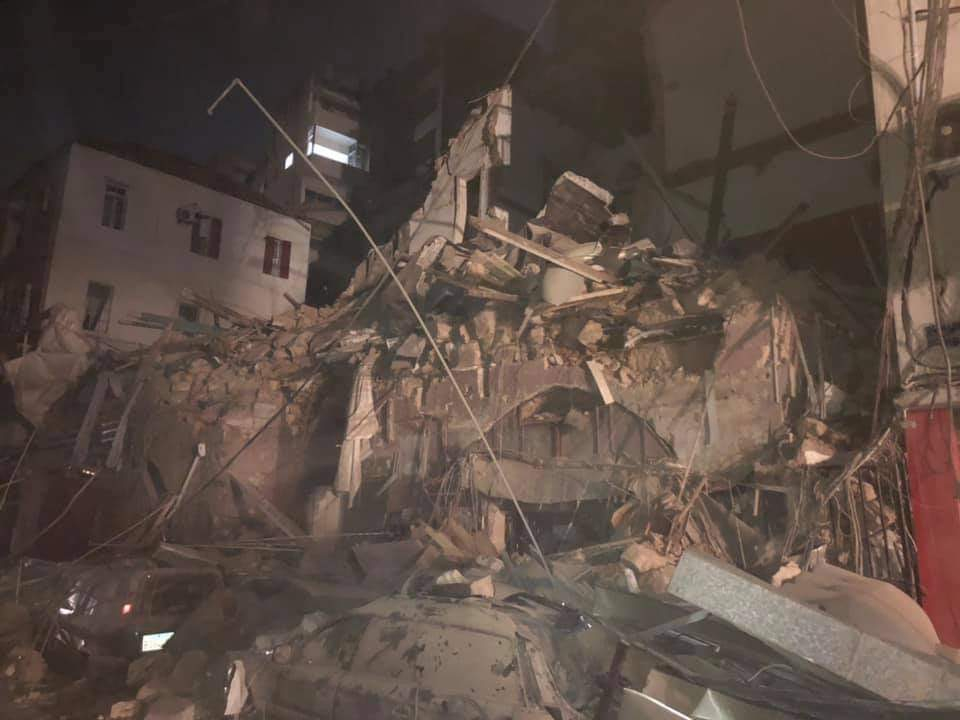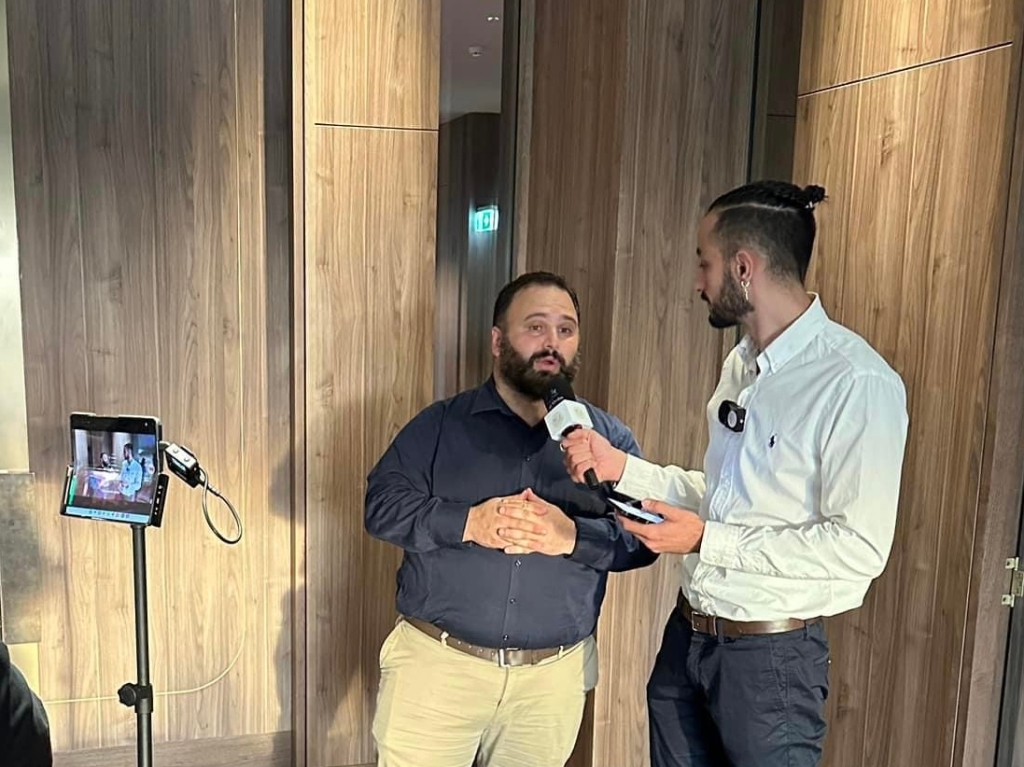As part of my first ever research task for Journalism 101 I was instructed to find a journalist to interview to both get a feel for the industry and create a potentially useful future contact. This led me on an unnecessarily complicated quest to get in touch with the most high profile journalists I could find in an attempt to both flex my ability to initiate conversation with such qualified writers and also to gain some pointers from people who have made their presence felt within such a competitive industry.
So as you could guess, in order to get in contact with a Journalist of such high stature I’d have to hustle in the DM’s, and hustling in the DM’s is exactly what I did, I sent over 20 messages to 20 Journalists hoping that these generic messages would evoke even the slightest response and let’s just say it had mixed results.
interview one(ish?): Andrew Jacobs – NY Times

Okay so this one doesn’t really count but it was too good not to include, because I managed to get in contact with a New York Times Journalist… Well, actually by “managed to get in contact with” i actually just got a total of 12 words out of him and an email to contact him on, i immediately sent him an email hoping for a response but to no avail, i had been led on by New York Times Journalist two weeks into my journalism career, I contemplating it calling it quits right there and transferring to a new course 💔
Part of me visualised him leaning back in his office chair laughing at the fact he had gotten my two week old journalist hopes up for nothing as he sat in his office that overlooked the entirety of New York City, but then the rational side acknowledged his job is literally to cover global health and admist the Coronavirus pandemic this mans workload would be near the most it’s ever been and of crucial importance right now.
interview two: Gareth Morgan – WhatCulture

As someone who has always been a frequent reader of the entertainment news outlet, WhatCulture I was ecstatic when my message caught the attention of writer Gareth Morgan as I have always been a frequent reader of his articles on the WWE and often relied on them to keep me up to date with wrestling with my daily schedule making it harder to watch the shows. He also brags a total of 5.2 million views across his 198 articles so to say I was talking to someone who was experienced in the field of writing and getting his work seen would be an understatement. Here’s how the chat went:
1) Tell me about your job at WhatCulture, whether you think it’s important, and, if so, why?
The job involves me writing articles based on WWE, MMA, Film, TV and other topics, I record VO for said topics too. It’s important to me because we’re creating content that people all over the world enjoy and having a bunch of fun along the way!
2) Tell me about what drew you to journalism?
The idea of being able to get information out to people and creating interesting work always appealed to me.
3) Where do you see journalism headed, as there are many who have predicted its death?
With the internet we now have more access than ever before. We may start to see the end of physical reports but we currently live in a time where it’s never been easier to get information out there and digest it. We just have to make sure it’s the right information.
4) How did you end up currently employed at WhatCulture and how would you describe the current climate of Journalism?
I saw an ad, applied, wrote for a few months, trialled and here I am! Imagine a think tank mixed with pro wrestling and you’re halfway there.
5) What advice would you give to journalism students and beginner journalists?
Just keep writing. Your opinions and style will grow naturally the more you write and stay true to yourself.
interview three: Adam Langenberg – The Wire Report

The Wire Report is a publication from Canada that I was not too familar with going into my conversation with Adam but after talking to him I was fully aware with what the publication offered. I was extremely gracious following my conversation with Adam, not only because he became my first verified Twitter follower (thank you very much for that btw) but rather because he provided me with answers that challenged the way that I perceived the industry, sharing his fears for the future of journalism and even saying I shouldn’t be fearful of moving to a regional area for my first journalism job. He even offered his email incase I ever needed any further help or mentoring which was great. Here’s how our conversation went:
1) Tell me about your job at The Wire Report, whether you think it’s important, and, if so, why?
I began at The Wire Report in January, after moving from Australia to Canada. The Wire Report covers Canada’s telecommunications and media sectors, so lots of my job is focused on covering the big telecom companies, government policy and the federal regulator, the Canadian Radio-Television and Telecommunications Commission. At the moment in Canada there’s a big focus on lowering mobile phone bills, so that’s a key focus of my reporting. The job involves covering federal parliament and its committees in Ottawa, regulatory hearings and reporting on the financials of the big companies. I think there’s no doubt that telecommunications matter – people struggle to live without phones and internet connections these days, and I’d argue that it’s for that reason that reporting on the sector matters too.
2) What drew you to journalism and were you always a writer and particularly interested in sports journalism?
I remember deciding at 13 or 14 that I no longer wanted to be a school teacher and declaring that I’d be a journalist instead, but I don’t think I had any idea of what it entailed. I liked reading and writing and always did well at english at school so it seemed like a good fit. Although my Twitter page is full of AFL tweets I don’t actually work in sport, although I wanted to until deep in my university degree at Monash. I did a few internships during my degree (at Leader Newspapers in Melbourne, and at ABC Radio in Mildura) and was really struck by the importance of local news. As someone who comes from a little town in North-West Tasmania, telling the stories of the issues and the people that mattered to a community was something I immediately loved and wanted to do. It was that love that led me to getting a job with The Advocate, a daily newspaper in North-West Tasmania, when I finished my degree.
3) Where do you see journalism headed, as there are many who have predicted its death?
I wish I had a crystal ball to be able to answer this properly! I think there’s two sides to this – quality journalism is still critically important, but people much smarter and more qualified than me have battled for a long time to make it profitable. The simple answer is I don’t know. I’m confident journalism of some kind will still exist going forward, but I don’t know what form it takes, and I’m probably a little bit fearful that it won’t be as diverse or robust as it is now.
4) How were you able to amass your Twitter following and end up employed at The Wire Report?
I think my Twitter following is probably just caused by the fact that I’ve worked for lots of different places. I initially worked in North-West Tasmania, then moved to Hobart where I covered State Parliament, before moving to Adelaide to cover state politics for The Advertiser and Sunday Mail. My followers are mostly people who followed my reporting at one of those three places or Richmond supporters, and for whatever reason they haven’t got sick of me just yet.
In terms of how I got employed at The Wire Report – I quit my job at The Advertiser in Adelaide in August 2019 and moved to Ottawa in Canada as my partner got a job with the Geological Survey. I spent a few months harassing potential employers and sending applications and was lucky enough to find a job pretty quickly.
5) What advice would you give to journalism students and beginner journalists?
My mantra during university is trial and error. Try and do at least one internship during your degree – ideally your course mandates that. And make them as varied as possible, try to get an experience of what life is like in TV, in radio and at a newspaper. If you can, do a few things on top of that – volunteer for a sports league, write music reviews – anything that gets you writing, comfortable interviewing people and asking questions and honing your voice as a writer. I think that’s just as beneficial for working out what you want to do as it is for making you look appealing to employers when you start looking for full time work. In the end, you all come out with the same piece of paper – so I think university is about getting experience and working out who you want to be as a journalist more than it is about getting really good marks.
The other thing I’d stress is don’t be afraid to move to a regional area for your first job. Some of the best journalists I know got a grounding in areas like Newcastle, Horsham, Launceston, Mildura and Burnie. You get to do everything to a level you just don’t get to experience as a cadet at a major newsroom and the workload is pretty intense. Big news organisations look really favourably on young journalists who’ve spent time learning the craft in those environments – you have no choice but to learn on the job!
So those were my interviews with a few journalists, hopefully if you too are a journalism student or someone interested in the field you were able to learn something from it!
Oh, yeah and the 17 other journalists I messaged? Well, one said they weren’t qualified enough to answer my questions and then when I asked if he could direct me to anyone who could answer my question I was politely slammed on read. And uhh, the other 16 just didn’t make the effort to open the message so needless to say, I got super lucky with the guys I did manage to hear back from!



